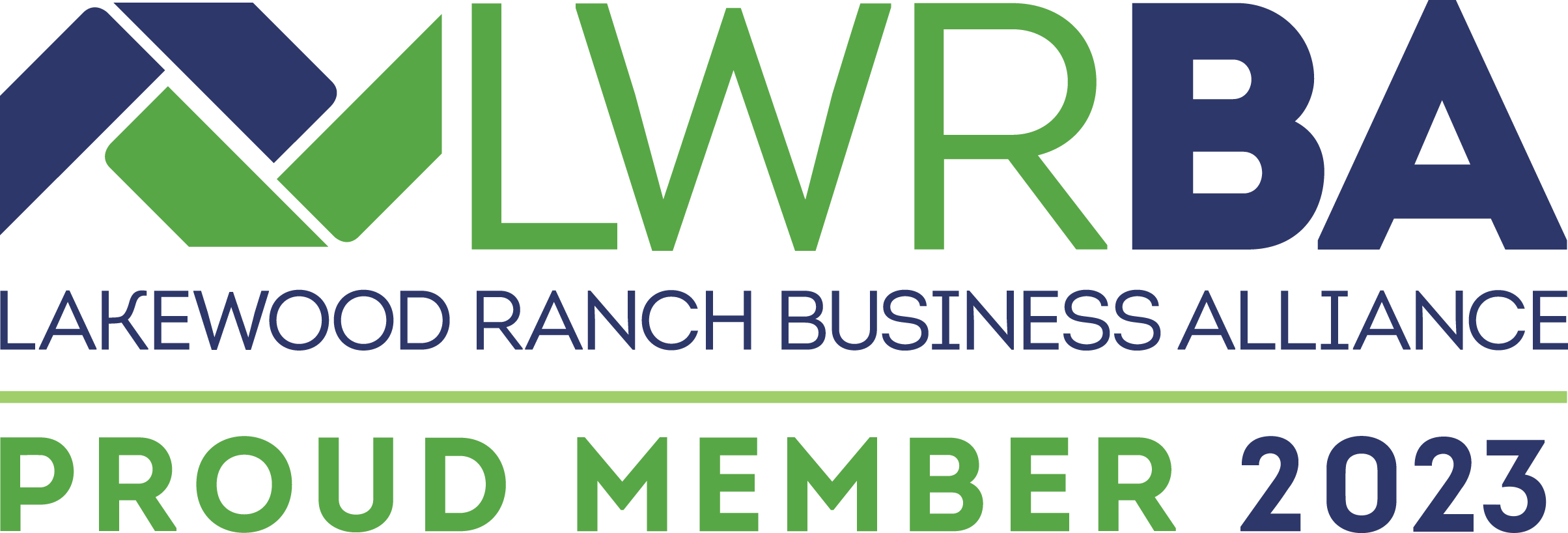Elder Abuse
elder abuse attorney
There is no excuse for elder abuse in Florida. Still, elder abuse happens every day. In many instances, this abuse goes unreported despite the serious consequences for a victim and their family.
At Luhrsen Goldberg, we want to help victims of elder abuse in Florida in any way we can. If you or someone you know is the victim of elder abuse and needs legal help, we are here to assist. When you do, our elder abuse attorney can review your case and help you determine how to proceed with it.
How Elder Abuse Is Defined in Florida
Elder abuse involves adults over the age of 60. The abuse occurs when an elder is abused, neglected, or financially exploited. It can happen at an elder’s home, a nursing home, or an assisted living facility.
Research indicates at least 10% of adults age 65 and older experience some form of elder abuse in a given year. There is no telling when or where elder abuse will begin or who it will affect. Regardless, at the first sign of elder abuse, it pays to partner with an experienced attorney.
By hiring an elder abuse lawyer, you can file a lawsuit against anyone responsible for your abuse. Your attorney will work with you to ensure any at-fault parties are held accountable for their actions.
Types of Elder Abuse
There are seven types of elder abuse our attorneys frequently represent.
Physical Abuse
Physical abuse occurs when physical force is used against an elder. The abuse can cause physical pain or bodily injury. It comes in many forms, including hitting, kicking, and slapping an elder.
There are many physical symptoms that indicate an elder is the victim of physical abuse. These include:
- Bruises
- Bone fractures
- Open wounds
- Sprains
- Internal injuries
Elder abuse attorneys cannot change the fact that an elder has suffered physical abuse. Conversely, they can help physical abuse victims seek justice. By partnering with an elder abuse lawyer, you can do your part to stop physical abuse.
Sexual Abuse
A person sexually abuses an elder if they engage in any non-consensual sexual contact with this individual. Forms of sexual abuse include unwanted touching and sexual assault. Those who are found guilty of sexual abuse against an elder can receive civil and criminal penalties.
It can be difficult for an elder to report sexual abuse. Yet, the problem is unlikely to disappear on its own. If you or someone you know is the victim of elder sexual abuse, now is the right time to connect with elder abuse lawyers.
You can hire an elder abuse attorney that knows the ins and outs of elder abuse law in Florida. This attorney will make sure you can engage with authorities and other parties to report any sexual abuse you or someone you know has experienced. This can help you take the appropriate steps to punish sexual abusers for their actions.
Psychological Abuse
An elder becomes the victim of psychological abuse when someone causes them to experience pain or anguish due to verbal or nonverbal acts. Types of psychological abuse include intimidation, humiliation, and insults. There can be times when an elder is put into isolation or given the “silent treatment,” both of which are forms of psychological abuse.
Elders can suffer psychological abuse without realizing it is happening. Signs that someone is the victim of elder abuse include feeling agitated or upset. Victims of psychological abuse may also be more prone than others to withdraw from activities they previously enjoyed.
An elder abuse attorney will look at your case and help you assess the severity of any psychological abuse you have incurred. The lawyer can help you request damages against the defendant responsible for this abuse. On top of that, the attorney can help you navigate the legal process and put an end to psychological abuse against you and any other victims.
Elder Neglect
A person neglects an elder by refusing to fulfill their duties or obligations to this individual. For example, an in-home service provider may fail to provide an elder with medicine or other necessities. In this instance, the service provider is neglectful and can face serious penalties.
Elder neglect comes in many forms. A person can neglect an elder by leaving them dehydrated or failing to help this individual manage their personal hygiene. Neglect also occurs when an individual does not attend to an elder coping with health problems, mistreats an elder, or creates unsafe or unsanitary living conditions for them.
Even though elder neglect is a big problem in cities and towns across the United States, it often goes unreported. If you or someone you know is the victim of elder neglect, seek legal help. From here, you can stop elder neglect before it further compromises a victim’s health and well-being.
Abandonment
An elderly person may rely on one or more individuals for care and support. An at-risk elder is particularly vulnerable if they are left alone. This is considered abandonment and could lead to an elder’s death.
Abandonment occurs when a caregiver deserts an elder at a hospital, shopping center, or elsewhere. In this scenario, the elder is left without anyone to care for or support them. Even worse, the elder may not know who or where they are.
In cases of elder abandonment, it is paramount to hold the at-fault party responsible. With help from an elder abuse lawyer, you can do just that. Your attorney can review your abandonment case and provide you with personalized tips and recommendations on how to proceed with it.
Material or Financial Exploitation
An elderly person may give someone else control over their possessions and finances. They may choose to do so in the hopes that this individual acts in their best interests. Unfortunately, there is no guarantee that a person will manage the elder’s possessions and finances properly.
Material or financial exploitation occurs when someone illegally or improperly uses the possessions, money, or assets of another. For instance, someone may write and cash checks from an elder’s bank account without this individual’s consent. By writing and cashing the checks, an individual is exploiting the elder.
Proving material or financial exploitation can be challenging. Thankfully, an elder abuse lawyer can help an individual fight back against material and financial exploitation. The lawyer can take a look at a person’s claim and figure out how to show a judge or jury that this individual was being materially or financially exploited.
Self-Neglect
An elderly person may threaten their own safety. This is reflected in self-neglect, which occurs when an elder decides to ignore their personal needs. In instances of self-neglect, an elder may fail to provide themselves with any of the following:
- Food
- Water
- Clothing
- Shelter
Self-neglect in elders can escalate quickly. If you believe an elderly loved one is ignoring their personal needs, get help. You can engage with the loved one or seek professional assistance to ensure your loved one is safe.
Signs of Elder Abuse
Spotting the signs of elder abuse is rarely simple. However, there are several things to watch for that indicate an elder may be the victim of abuse. An elder may be a victim of abuse if they:
- Increasingly appear depressed, confused, or withdrawn
- Frequently isolated from family members and friends
- Have burns, scares, or sores that appear without explanation
- Look dirty, dehydrated, or malnourished
- Are not receiving medical care for their health problems
- Have bed sores or other preventable health conditions
- Have noticeable changes in their banking and spending activities
If you believe an elder is the victim of abuse, talk to them about it. Doing so can be tough, but it gives you and an elder the opportunity to discuss your concerns. You can offer support to the elder and help this individual determine what to do from here.
Ultimately, if you find an elder is the victim of abuse, call 911 and report the issue. Police can then investigate the abuse claim and do everything in their power to make sure the abuse stops. It is also beneficial to get in touch with an elder abuse attorney to help you seek damages against any at-fault parties.
Tips for Reporting Elder Abuse
When it comes to reporting elder abuse, err on the side of caution. In emergencies, report the abuse to the police so that they can launch an investigation. This is an ideal option to stop elder abuse as quickly as possible.
If you report elder abuse, the Florida Department of Children and Families (FDCF) can offer support. FDCF provides an abuse hotline you can call 24/7. It also gives you the option to report abuse online.
Provide as much information as you can when you report elder abuse. If you have documented instances of elder abuse, share this information. By providing adequate information about an elder abuse claim, you can ensure the issue is given the time and attention it deserves.
Tips for Preventing Elder Abuse
Elder abuse is unpredictable, but there are many things you can do to prevent it from happening. These include:
- Treat any report of abuse from an elder seriously
- Offer care and support to elders in need
- Check-in with elders to ensure they are receiving the care and support they need
- Assist overburdened caregivers so they can provide elders with the proper level of care and support
- Keep an eye out for the signs of elder abuse and teach others about them
In addition, report elder abuse immediately. This enables you to work with authorities to ensure any elder abuse allegations are addressed. If you need extra help with reporting elder abuse, hire an attorney with experience in this area.
What to Expect from a Florida Elder Abuse Attorney
The best Florida elder abuse lawyer offers client-oriented service. This attorney allocates the time, energy, and resources necessary to understand their client’s case. As such, the lawyer is able to work in lockstep with their client to help them achieve the optimal case result.
Also, the ideal elder abuse lawyer in Florida is all about trust. This attorney works hard to establish a positive relationship with their client. The attorney keeps the lines of communication open with their client and is ready to respond to this individual’s concerns and questions at any time.
An elder abuse attorney in Florida is aggressive in their approach to their client’s litigation. Rather than sit back and wait for the defendant to make a move, the attorney constantly looks for ways to strengthen their client’s case. If the lawyer is successful, their client should have no trouble presenting a compelling argument in court.
How to Choose an Elder Abuse Lawyer in Florida
If you are looking to hire an elder abuse attorney in Florida, set up a date and time to meet with a lawyer. This gives you an opportunity to share details about your case with the lawyer. You can then determine if the lawyer has what it takes to fulfill your legal requests.
It is usually a good idea to check out an attorney’s client testimonials and reviews. Doing so gives you a glimpse into what it is like to work with a lawyer. If a lawyer has received plenty of positive feedback from their clients, they may be able to help you accomplish your desired case result.
Take your time with the process of finding and hiring a lawyer. Spend the time you need to evaluate elder abuse lawyers in Florida. If you feel comfortable with an attorney and believe this lawyer can represent your best interests in court, only then should you hire them.
Get Started with an Elder Abuse Lawyer in Florida
Luhrsen Goldberg, a women-founded and women-led law firm, and its elder abuse attorney is interested in helping and guiding elder abuse victims and their families. To learn more or request a free case evaluation, please contact us today.






